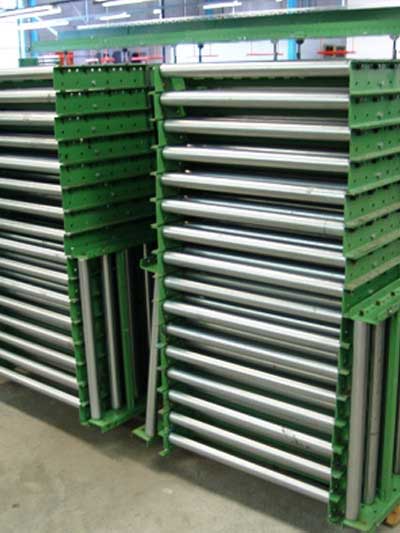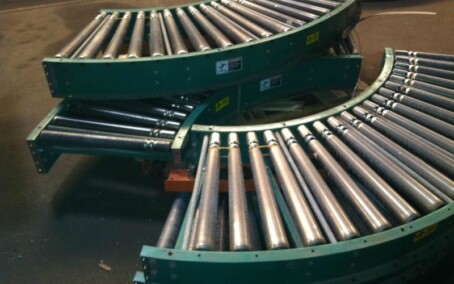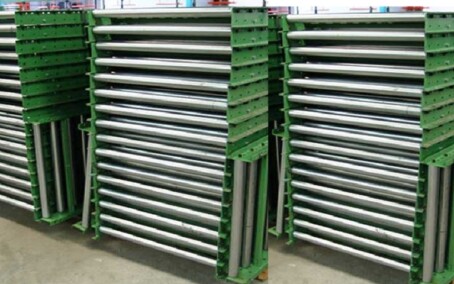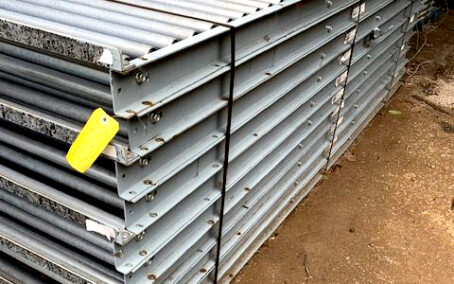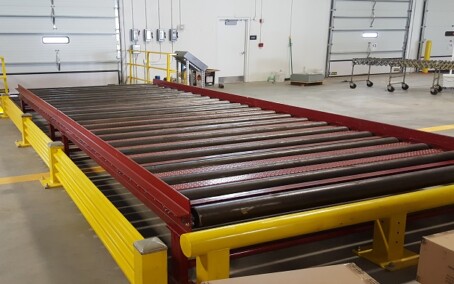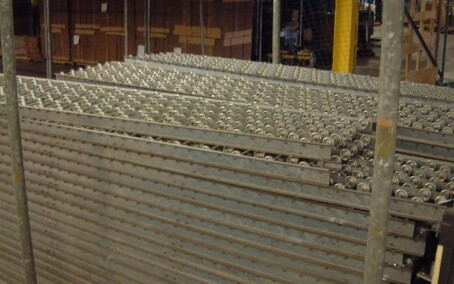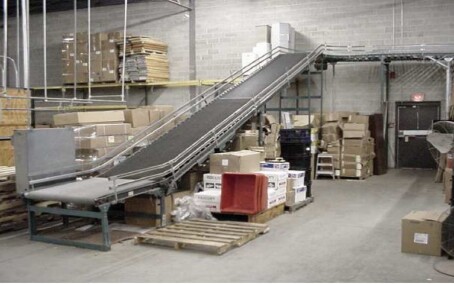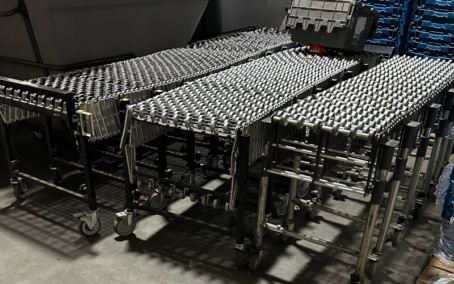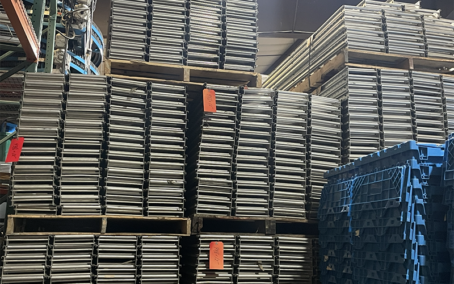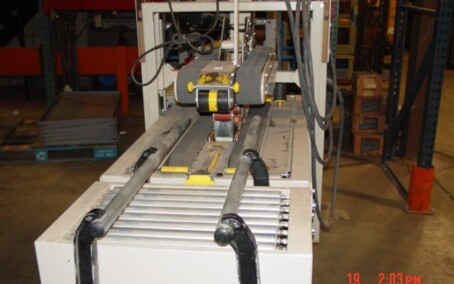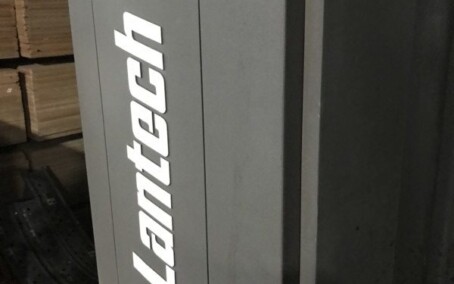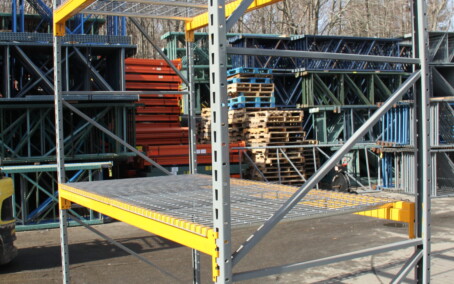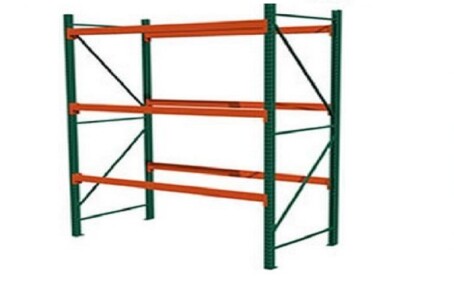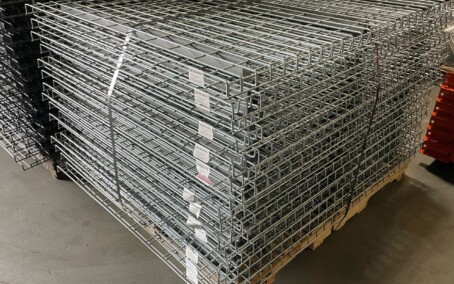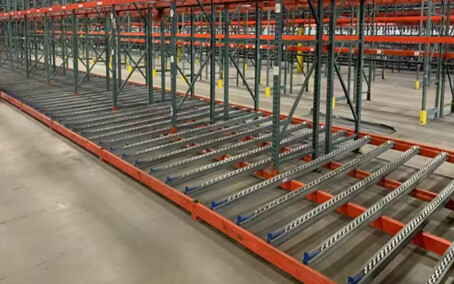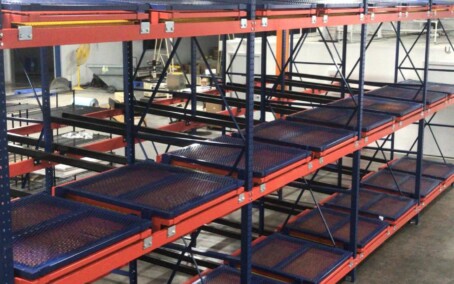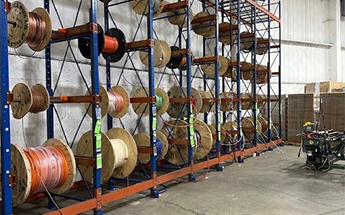Gravity Conveyor Systems
Efficient material handling is the cornerstone of streamlined operations across industries. In the world of conveyance solutions, gravity conveyor stand as a testament to simplicity and effectiveness. These unpowered systems rely on the force of gravity to move items along a path, offering a cost-effective and eco-friendly way to transport goods. If you're on the lookout for versatile and efficient solutions, look no further than gravity conveyors for sale.
Versatile Varieties of Gravity Conveyors
Gravity conveyor are mechanical systems that utilize the force of gravity to move items along a predetermined path. These conveyors operate without motors or power sources, making them a sustainable and cost-effective solution for material handling. With a straightforward design and minimal moving parts, gravity conveyors offer reliable performance and low maintenance requirements.
Economical Material Handling
Gravity conveyor systems present a cost-effective solution for material handling needs. By relying on the natural force of gravity, these systems eliminate the need for motors or external power sources. As a result, they not only have lower initial installation costs but also contribute to reduced energy consumption over time. This makes them an appealing choice for businesses looking to optimize their operations while minimizing expenses. Additionally, the simplicity of design allows for easier maintenance and increased reliability, further enhancing their value in various applications.
Sustainability Through Gravity-Powered Systems
In today's environmentally conscious landscape, sustainability is a crucial factor in decision-making. These conveyor systems align seamlessly with sustainability goals by harnessing the power of gravity, a natural force, to transport items. This approach significantly reduces reliance on energy-intensive mechanisms, making them an eco-friendly choice for businesses committed to minimizing their environmental impact. By adopting such systems, organizations can effectively contribute to a greener future while maintaining operational efficiency.
Low Maintenance Benefits
Featuring fewer moving parts and the absence of motors, these conveyor systems require minimal maintenance. This simplicity translates to reduced downtime and lower maintenance expenses, ultimately enhancing operational efficiency. By decreasing the need for frequent repairs and upkeep, organizations can ensure smoother workflows and maximize productivity, allowing them to focus on their core operations without unnecessary interruptions.
Customizable Layouts
Gravity conveyor systems can be customized in a variety of layouts to meet the specific requirements of a facility’s design and operational goals. Their versatility allows them to be seamlessly integrated with other types of conveyor systems, creating a cohesive material handling solution tailored to unique workflows. Alternatively, they can function effectively as standalone units, providing flexibility for businesses looking to optimize space and efficiency. This adaptability makes them ideal for a wide range of applications, from warehouses to production lines, ensuring that each setup maximizes productivity and meets the dynamic needs of the operation.
Enhanced Safety
Gravity conveyor systems significantly enhance safety in material handling by reducing the need for manual lifting and transporting of items. By automating the movement of goods, these systems help minimize the physical strain on workers, which in turn lowers the risk of workplace injuries. This not only promotes a safer work environment but also supports employee well-being and morale.
When workers are less exposed to the risks associated with heavy lifting and carrying, they can focus on their tasks more effectively, leading to improved productivity. Furthermore, a commitment to safety through the use of such systems demonstrates an organization's dedication to its workforce, fostering a culture of care and responsibility. Overall, implementing these systems is a proactive step toward creating a healthier, more efficient workplace that prioritizes the safety of its employees.
Efficiency in Setup
The installation of gravity conveyor systems is generally more straightforward than that of powered alternatives. This ease of setup not only saves valuable time during the installation process but also facilitates quicker integration into existing material handling workflows.
The uncomplicated design and lack of complex electrical components mean that these systems can often be assembled and put into operation with minimal disruption. As a result, businesses can swiftly adapt to changes in their operational needs or expand their current systems without significant downtime. This efficiency in installation can lead to a faster return on investment, allowing organizations to enhance their productivity and streamline processes almost immediately. Additionally, the reduced complexity often means lower labor costs associated with installation, making these systems an even more attractive option for companies looking to optimize their material handling solutions.
Enhancing Warehouses and Distribution Centers
In warehouses and distribution centers, gravity conveyor systems play a vital role in activities such as order picking, sorting, and loading items onto trucks for delivery. Their design ensures the efficient movement of goods while eliminating the need for external power sources. This functionality not only streamlines operations but also reduces energy costs, making them an environmentally friendly option.
By leveraging gravity to facilitate the transportation of products, these systems allow for a smooth flow of items through various processes. This enhances productivity and minimizes bottlenecks, ultimately leading to quicker turnaround times for orders. Additionally, their versatility means they can be easily adapted to different layouts and operational requirements, further optimizing the handling of goods within the facility. As a result, businesses can maintain a high level of efficiency and responsiveness to customer demands.
Optimizing Loading Docks
Gravity conveyor systems are transformative for loading docks, allowing for the efficient movement of goods without relying on external power sources. These systems are specifically designed to streamline both the unloading of items from trucks and the loading of products onto delivery vehicles.
By utilizing the natural force of gravity, these conveyors enhance the flow of materials, making processes quicker and more efficient. This design not only minimizes the need for labor-intensive methods but also reduces the physical strain on workers, leading to a safer work environment. As a result, businesses can operate more smoothly, improving turnaround times and ensuring that products are dispatched promptly. Overall, the implementation of such systems significantly boosts operational efficiency at loading docks, enabling organizations to respond more effectively to logistical demands.
Loading Docks: Time-Sensitive Efficiency
Loading docks are time-sensitive environments where rapid material handling is essential for operational efficiency. Gravity conveyor systems facilitate a continuous flow of items, effectively minimizing wait times and accelerating both unloading and loading processes.
By maintaining a steady movement of goods, they help streamline workflows, ensuring that products are swiftly processed and dispatched. This efficiency not only improves overall productivity but also enhances coordination among staff, reducing the potential for delays. In such fast-paced settings, the ability to quickly handle materials can make a significant difference in meeting tight deadlines and satisfying customer demands. Ultimately, implementing these systems transforms loading docks into more responsive and efficient operations, ready to tackle the challenges of modern logistics.
Efficient Assembly Line Processes
Gravity-based conveyor systems play a crucial role in facilitating the movement of items along assembly lines. By utilizing the natural force of gravity, these systems ensure that components are transported smoothly and efficiently, allowing for streamlined production processes.
With their ability to maintain a consistent flow of materials, these conveyors help guarantee that components arrive at the appropriate workstations precisely when needed. This timely delivery is vital for maintaining the rhythm of the assembly line, reducing bottlenecks, and preventing delays that could disrupt overall productivity.
Moreover, the straightforward design of these systems allows for easy integration into existing workflows, making them adaptable to various layouts and operational requirements. Their reliability minimizes the need for manual handling, which not only enhances safety but also allows employees to focus on more value-added tasks. Overall, gravity-based conveyors significantly improve the efficiency of assembly lines, contributing to higher output and better quality control in the manufacturing process.
Hygienic Material Handling in Food Production
In food and beverage production facilities, where hygiene is of utmost importance, gravity conveyor systems specifically designed for clean environments play a vital role. These systems facilitate the safe movement of products while significantly reducing the risk of contamination. Engineered with materials that prioritize cleanliness, they feature smooth surfaces and minimal crevices, preventing the accumulation of dirt and bacteria. This design ensures compliance with stringent health regulations and makes cleaning and sanitizing straightforward and efficient.
By effectively transporting items without the need for motors or external power sources, these systems minimize the potential for mechanical failures or spills that could compromise product safety. Their reliable operation not only protects the integrity of food and beverage products but also supports streamlined workflows, allowing facilities to maintain high levels of productivity. Ultimately, implementing such systems fosters a culture of safety and accountability, reinforcing a commitment to hygiene and excellence in the industry while ensuring that quality standards are consistently met.
E-commerce Fulfillment Accelerated
In e-commerce fulfillment centers, gravity conveyor systems are essential for the efficient movement of items from storage to various stations, including picking, packing, and shipping. By utilizing gravity to facilitate the flow of products, these conveyors significantly expedite order fulfillment processes. Their straightforward design allows for quick integration into existing workflows, enabling seamless transitions between different stages of the fulfillment cycle. This efficiency helps reduce processing times and enhances overall productivity, allowing fulfillment centers to meet the growing demands of online shoppers.
Moreover, the reliability of these systems minimizes the need for manual handling, reducing the risk of errors and improving accuracy in order fulfillment. By ensuring that items are delivered to the right stations at the right time, they help maintain a smooth operational flow. As a result, e-commerce businesses can enhance customer satisfaction through faster delivery times and reliable service, ultimately positioning themselves as competitive players in the rapidly evolving online marketplace.
Unlocking Efficiency with Gravity Conveyors
Gravity conveyors have redefined efficiency in material handling by harnessing the power of gravity. With benefits ranging from cost savings and reduced maintenance to enhanced ergonomics and adaptability, these conveyors offer a compelling solution for businesses seeking to optimize their operations. From manufacturing and distribution to retail and e-commerce, gravity conveyors excel in various applications, contributing to streamlined processes and increased productivity. By embracing the advantages of gravity conveyors, businesses not only improve their bottom line but also take a step towards sustainable and efficient material handling practices.


